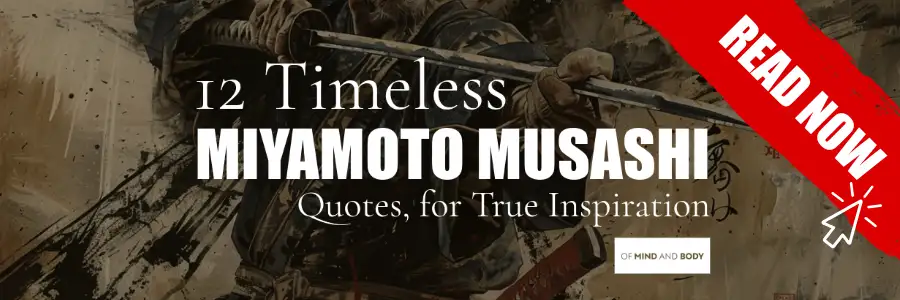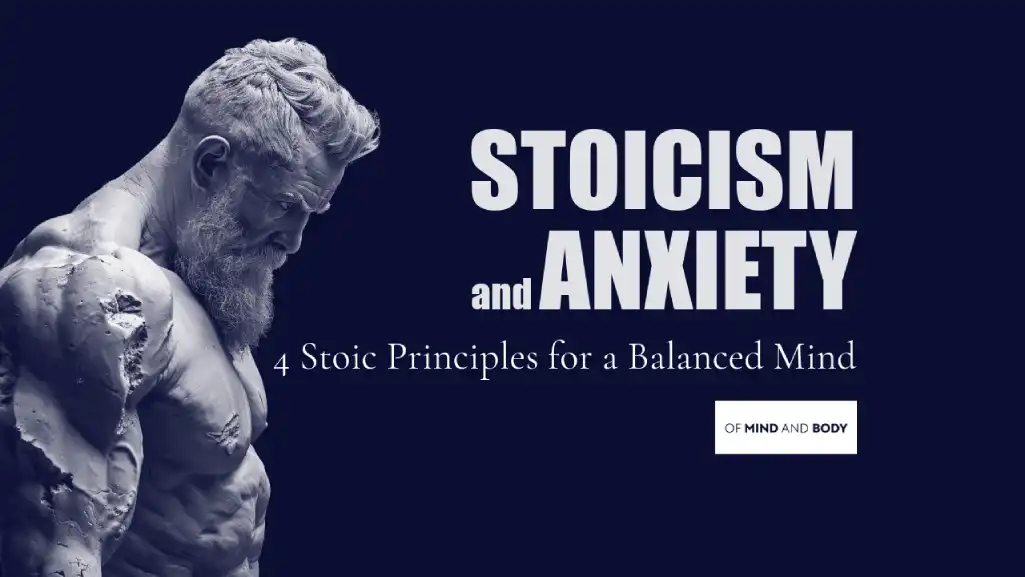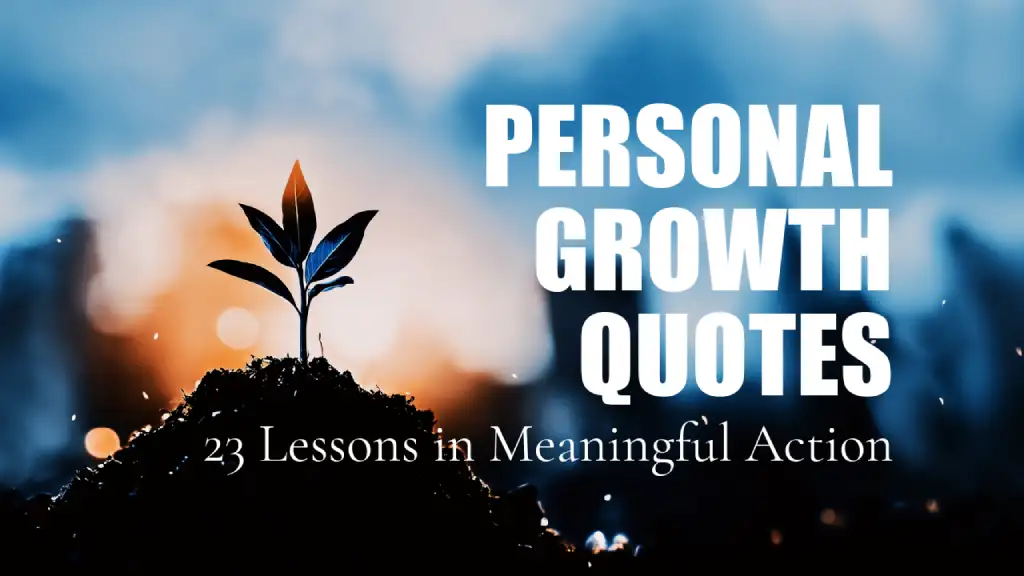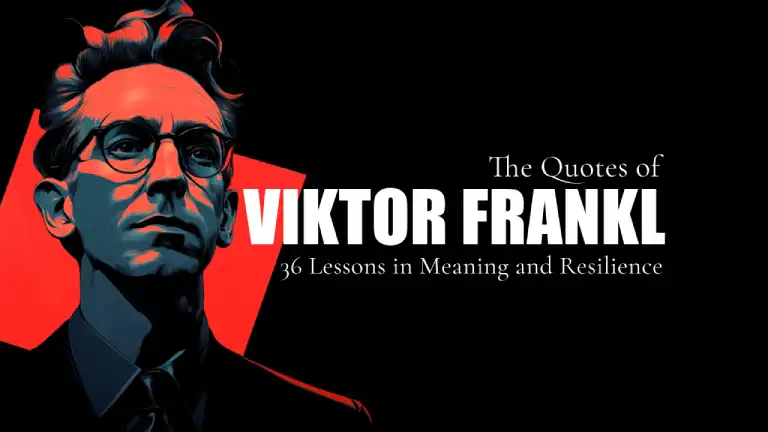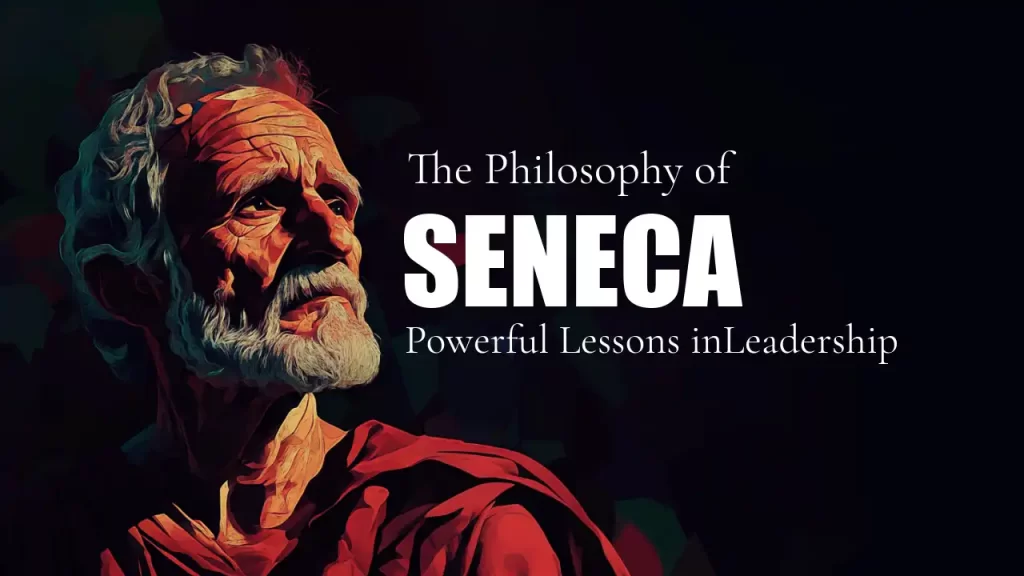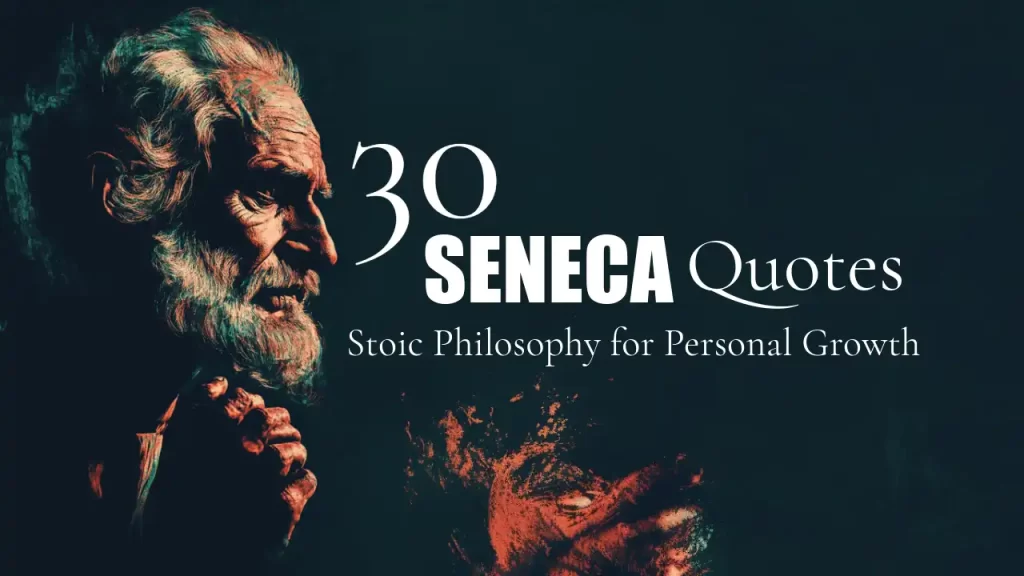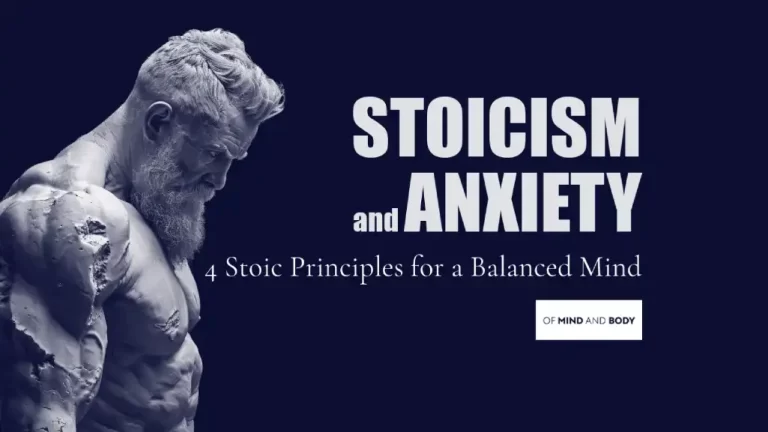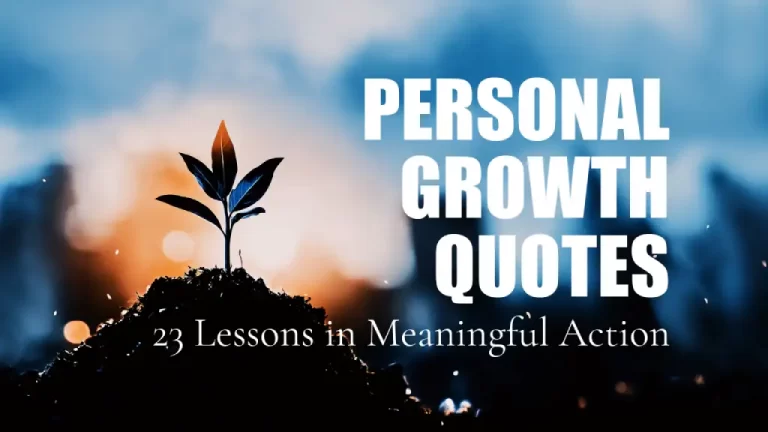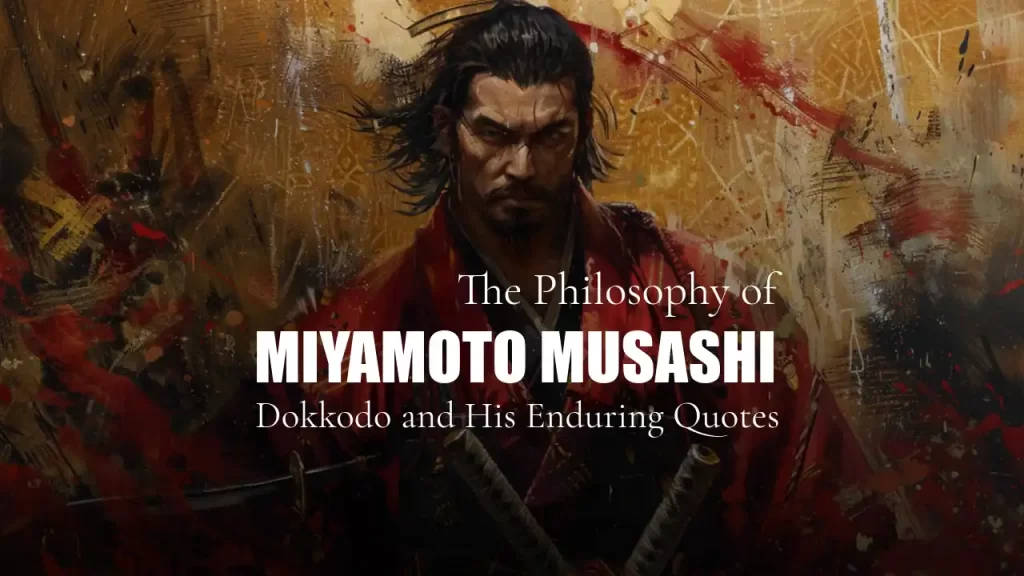
Introduction
Miyamoto Musashi’s Philosophy offers timeless insights into living a disciplined, resilient, and purposeful life. This article explores how Musashi’s principles, though rooted in samurai discipline, can be seamlessly integrated into modern daily routines.
We’ll explore the principles of Dokkōdō (The Way of Walking Alone), analyse some of his most enduring quotes, and delve into the application of his teachings on self-discipline, resilience, strategic thinking, efficiency, simplicity, and integrity.
Who is Miyamoto Musashi? – Philosopher and Strategist Extraordinaire
Miyamoto Musashi is not merely a name synonymous with unparalleled skill in swordsmanship but a figure whose philosophical insights have transcended time. Renowned as a samurai, his contributions extend beyond martial prowess into the realms of strategy and philosophy. His life’s teachings, particularly encapsulated in “Dokkōdō” (The Path of Aloneness), continue to offer profound wisdom on self-discipline, self-reliance, and the continuous pursuit of self-improvement.
Discovering “Dokkōdō“: The Path of Aloneness
“Dokkōdō,” written by Miyamoto Musashi shortly before his death, serves as a concise yet profound manifesto of his philosophical outlook. Comprising 21 precepts, it provides a guide for living a life of integrity, simplicity, and resilience. These precepts reflect Musashi’s journey and his reflections on what constitutes a meaningful life.
The Far-Reaching Influence of Musashi’s Quotes
Beyond “Dokkōdō,” Musashi’s numerous quotes offer timeless insights applicable to various facets of life. His words on strategy, perception, and self-mastery continue to inspire individuals across different domains, from personal development to professional success.
The Essence of Miyamoto Musashi’s Philosophy
The Core Principles of Musashi’s Philosophy: Self-Discipline, Self-Reliance, and Continuous Self-Improvement
At the heart of Musashi’s philosophy lies a triad of principles: self-discipline, self-reliance, and the relentless pursuit of self-improvement. Miyamoto Musashi advocated for a life of rigorous self-discipline, emphasising the importance of inner strength and autonomy. He believed that true mastery and personal fulfilment are achieved through continuous effort and the unwavering commitment to bettering oneself.
The Symbiosis of Martial Arts and Philosophy in Musashi’s Life
Musashi’s life exemplifies the integration of martial arts and philosophy. His rigorous training in swordsmanship was not merely physical but deeply intertwined with mental and spiritual growth. This symbiotic relationship between martial practice and philosophical contemplation shaped his approach to both life and combat, advocating for a balanced development of body, mind, and spirit.
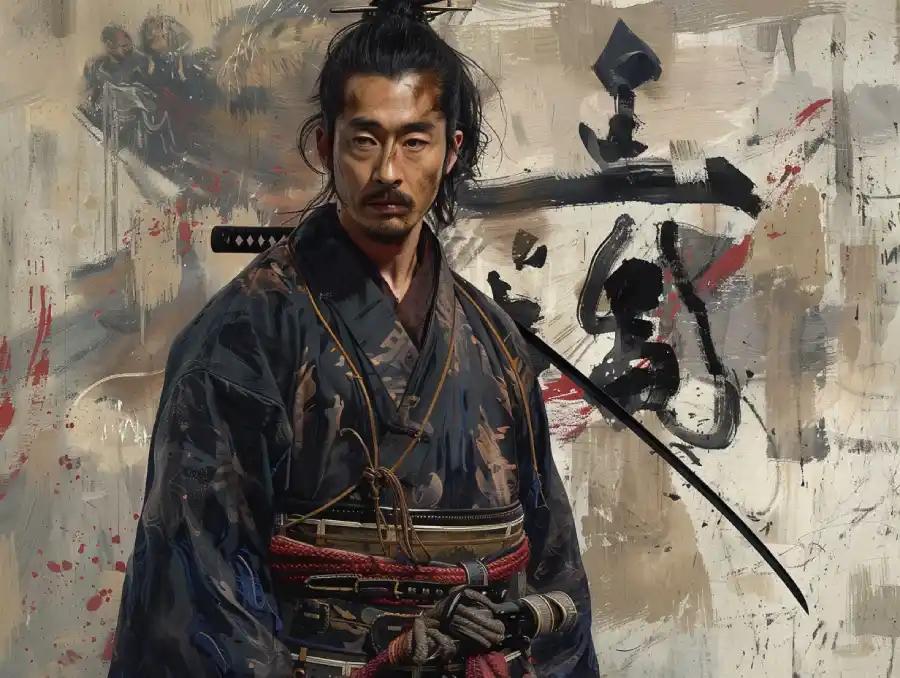
Detailed Analysis of Dokkōdō
Unveiling “Dokkōdō”: Context and Purpose
The 21 principles of Dokkōdō, penned by Miyamoto Musashi, represent a distilled essence of his philosophical outlook and life experiences. Each precept serves as a standalone principle, guiding one towards a disciplined and resilient life.
Written towards the end of his life, the 21 principles of Dokkōdō reflect his profound understanding of the human condition, the nature of existence, and the path to personal mastery. This work was Musashi’s final testament, offering a glimpse into the mindset that sustained him throughout his turbulent life.
The 21 Precepts of “Dokkōdō“: A Deep Dive
At their core, the principles of Dokkōdō emphasise themes of self-discipline, self-reliance, detachment, acceptance, and resilience. These principles are not merely guidelines for martial conduct but encompass a holistic approach to living a life of integrity, simplicity, and focused intent.
1
Accept everything just the way it is
In modern life, this principle encourages acceptance of circumstances, fostering resilience and reducing stress by focusing on what can be controlled rather than resisting reality.
2
Do not seek pleasure for its own sake
This promotes mindfulness and intentional living, steering individuals away from hedonistic pursuits towards more meaningful and fulfilling goals.
3
Do not, under any circumstances, depend on a partial feeling
Advocates for making decisions based on full information and rational thought rather than fleeting emotions, important in both personal and professional contexts.
4
Think lightly of yourself and deeply of the world
Encourages humility and a broad perspective, fostering empathy and a deeper understanding of global issues, which is essential in an interconnected world.
5
Be detached from desire your whole life long
Promotes contentment and reduces anxiety by minimising attachment to material possessions and desires, aligning with minimalist and mindful living trends.
6
Do not regret what you have done
Emphasises learning from past actions rather than dwelling on them, which is crucial for mental health and continuous personal development.
7
Never be jealous
Encourages focusing on self-improvement rather than envying others, leading to healthier relationships and personal growth.
8
Never let yourself be saddened by a separation
Supports emotional resilience and the ability to move forward positively after losses, which is vital in a transient, ever-changing world.
9
Resentment and complaint are appropriate neither for oneself nor others
Promotes positive communication and emotional intelligence, reducing conflict and fostering better interpersonal relationships.
10
Do not let yourself be guided by the feeling of lust or love
Advocates for balanced and rational relationships, preventing impulsive decisions based on fleeting emotions.
11
In all things have no preferences
Encourages flexibility and open-mindedness, allowing for better adaptability in various life situations and decision-making processes.
12
Be indifferent to where you live
Promotes adaptability and contentment regardless of external conditions, useful in an increasingly mobile and globalised world.
13
Do not pursue the taste of good food
Suggests moderation and mindfulness in consumption, aligning with contemporary views on healthy eating and sustainable living.
14
Do not hold on to possessions you no longer need
Advocates for decluttering and simplicity, which can lead to a more organised, stress-free, and environmentally friendly lifestyle.
15
Do not act following customary beliefs
Encourages critical thinking and innovation, essential for personal growth and adapting to new challenges in a rapidly evolving world.
16
Do not collect weapons or practice with weapons beyond what is useful
Promotes practical skills and the value of avoiding the accumulation of unnecessary items, relevant in both personal efficiency and societal safety.
17
Do not fear death
Encourages living life fully and taking calculated risks without being paralysed by the fear of mortality, fostering courage and boldness.
18
Do not seek to possess either goods or fiefs for your old age
Emphasises living in the present and finding security in skills and resilience rather than material accumulation, reflecting modern financial planning and sustainability principles.
19
Respect Buddha and the gods without counting on their help
Encourages self-reliance while acknowledging spiritual beliefs, promoting a balanced approach to faith and personal responsibility.
20
You may abandon your own body but you must preserve your honour
Stresses the importance of integrity and honour over physical preservation, relevant in maintaining ethical standards in modern professions and personal conduct.
21
Never stray from the Way
Advocates for consistency and dedication to one’s principles and path, crucial for achieving long-term goals and personal fulfilment.
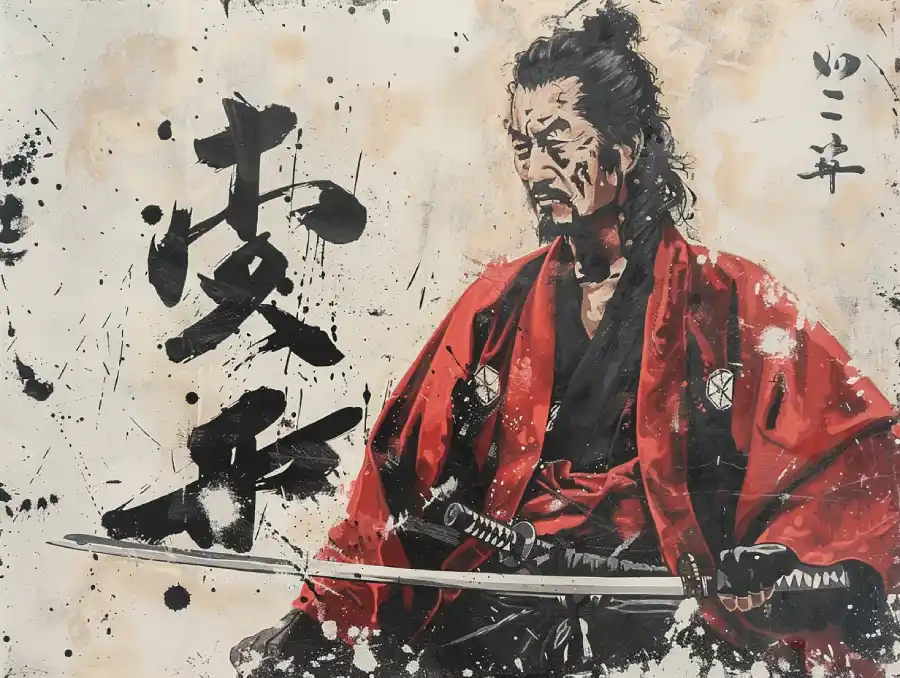
Key Takeaways from Dokkōdō
Self-Discipline and Self-Reliance: Musashi’s principles encourage individuals to cultivate inner strength and rely on their own capabilities rather than external dependencies. This focus on self-discipline and self-reliance is pivotal for achieving personal growth and resilience in the face of adversity. By fostering an attitude of self-sufficiency, individuals are better equipped to navigate life’s challenges with confidence and poise.
Detachment and Simplicity: The principles advocate for a life of minimalism and detachment from material possessions and emotional entanglements. Miyamoto Musashi believed that true clarity and focus arise from shedding unnecessary distractions and desires. This perspective aligns with modern concepts of minimalism and mindfulness, promoting a lifestyle that values simplicity and intentionality.
Acceptance of Reality: Musashi’s teachings emphasise the importance of accepting life as it is, without resistance or regret. This acceptance fosters a sense of peace and equanimity, allowing individuals to approach life’s ups and downs with a balanced mindset. By embracing the transient nature of existence, one can maintain inner stability and adaptability.
Perseverance and Resilience: The principles underscore the significance of enduring hardships and persisting in the face of difficulties. Musashi’s own life, marked by numerous battles and personal trials, exemplifies the power of perseverance. His teachings inspire individuals to remain steadfast and resilient, continually striving towards self-improvement and mastery.
Honesty and Integrity: Central to Musashi’s philosophy is the notion of living with honour and integrity. He stresses the importance of ethical conduct and maintaining one’s principles, even at the cost of personal sacrifice. This commitment to honour and moral rectitude is crucial for building trust and respect in personal and professional relationships.
Holistic Approach to Life: Musashi’s principles advocate for a balanced development of body, mind, and spirit. He believed that martial prowess and philosophical wisdom were intertwined, each enhancing the other. This holistic approach encourages individuals to seek growth in all aspects of life, fostering a well-rounded and harmonious existence.
In essence, the 21 principles of Dokkodo offer timeless wisdom for navigating the complexities of life. They provide a framework for cultivating inner strength, clarity, and resilience, enabling individuals to live with purpose and integrity. Musashi’s teachings continue to resonate today, guiding those who seek to achieve personal mastery and lead a life of meaning and fulfilment.

Analysis of Musashi’s Quotes
Musashi’s strategic wisdom, expressed through his quotes, offers timeless advice that we can apply in our daily decision-making. He teaches us the importance of intuition and being flexible, which can help us create effective plans in various areas of life, whether we’re tackling challenges at work or pursuing personal goals.
“Perceive That Which Cannot Be Seen with the Eye”
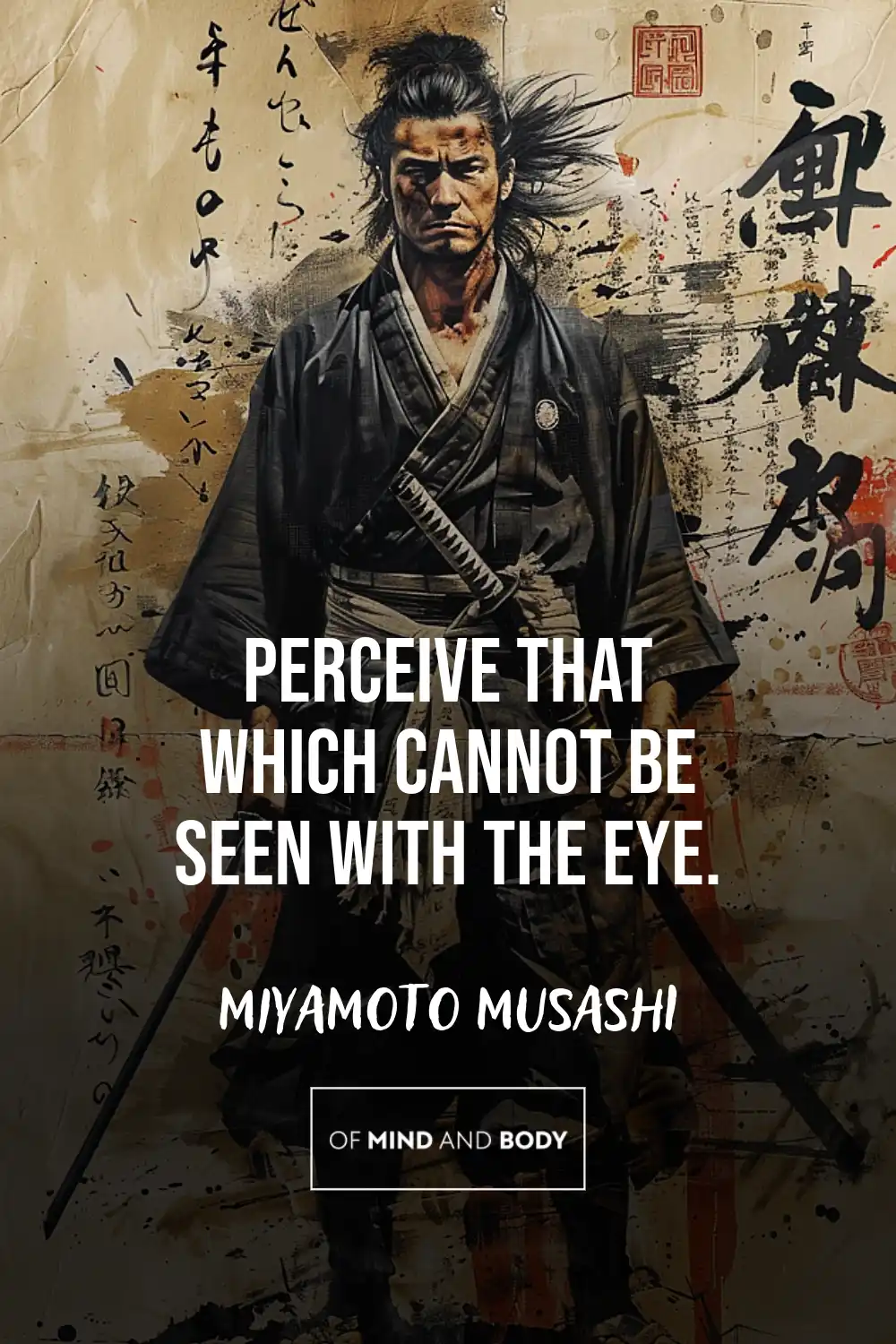
This quote highlights the importance of intuition and deeper perception in understanding and navigating the world. Musashi believed that true insight goes beyond the visible, relying on an intuitive grasp of underlying realities. This principle is invaluable in strategic thinking and decision-making.
“The Ultimate Aim of Martial Arts Is Not Having to Use Them”
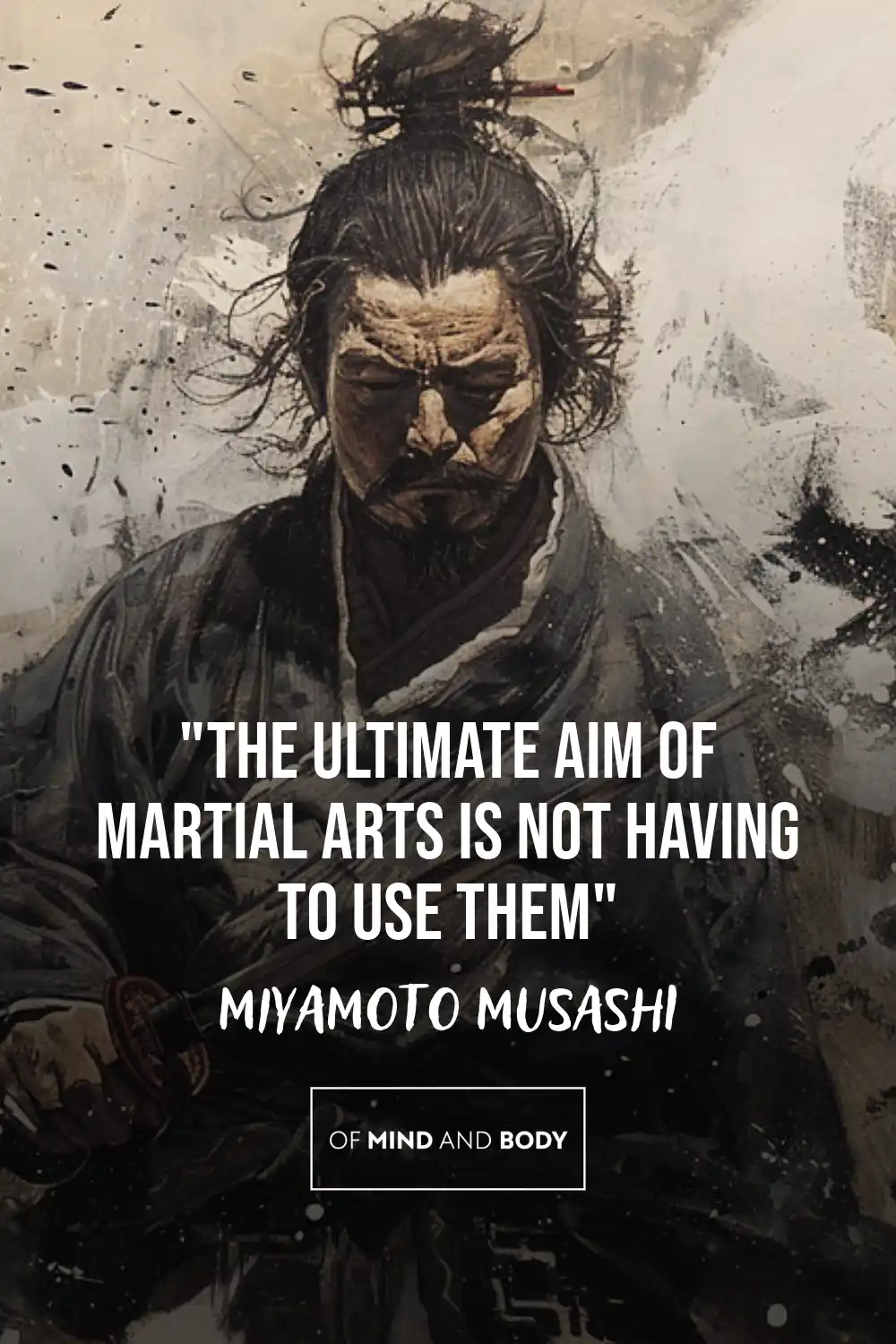
This quote embodies Musashi’s philosophy of peace and conflict resolution. He believed that the highest goal of martial arts was to cultivate a mindset that transcends violence. This principle advocates for resolving conflicts through understanding and wisdom, rather than physical confrontation.
“You Must Understand That There Is More Than One Path to the Top of the Mountain”
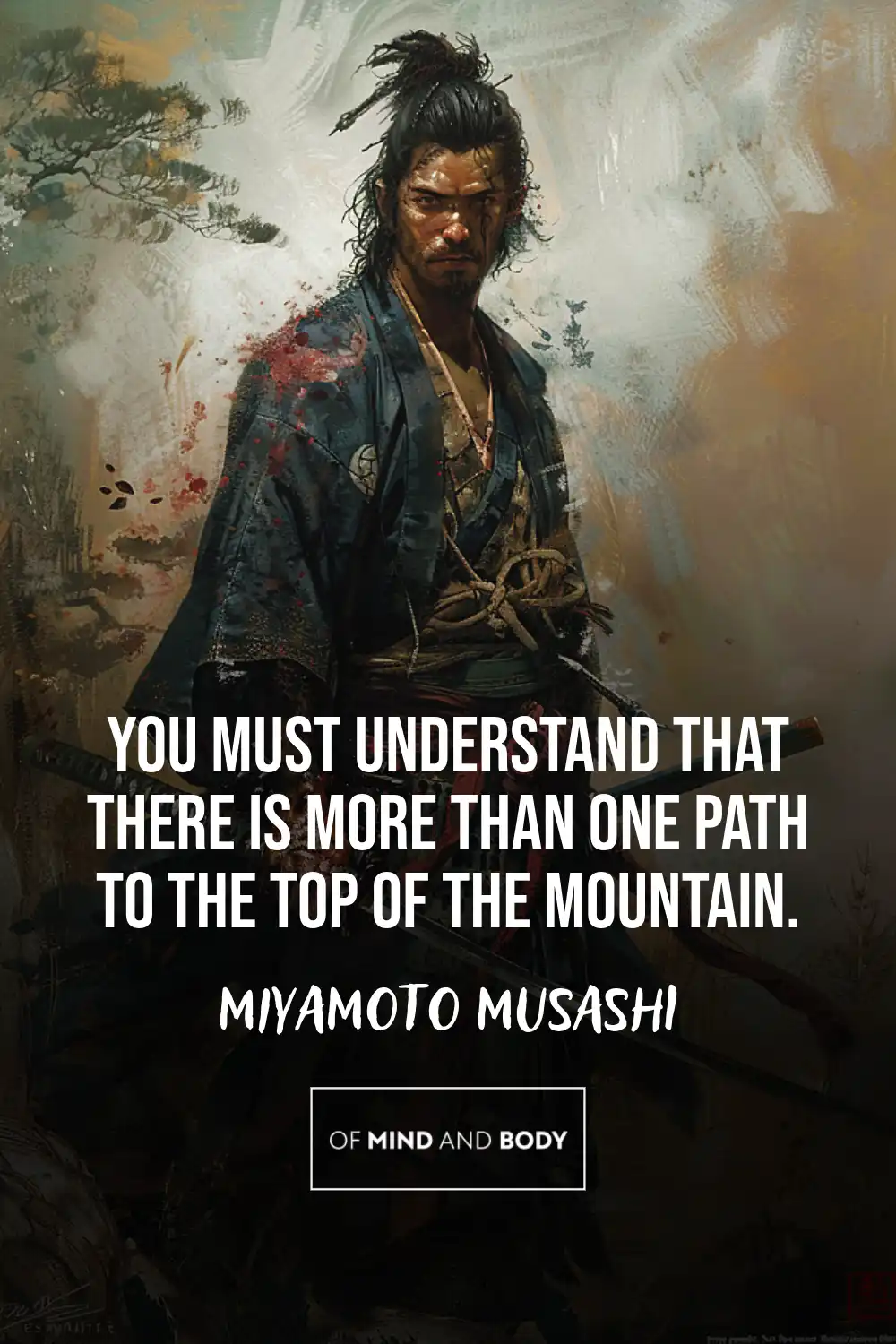
Musashi encouraged exploring diverse approaches to success, recognising that multiple paths can lead to the same destination. This philosophy promotes flexibility and creativity, essential traits for navigating the complexities of modern life.
“Do Nothing That Is of No Use”
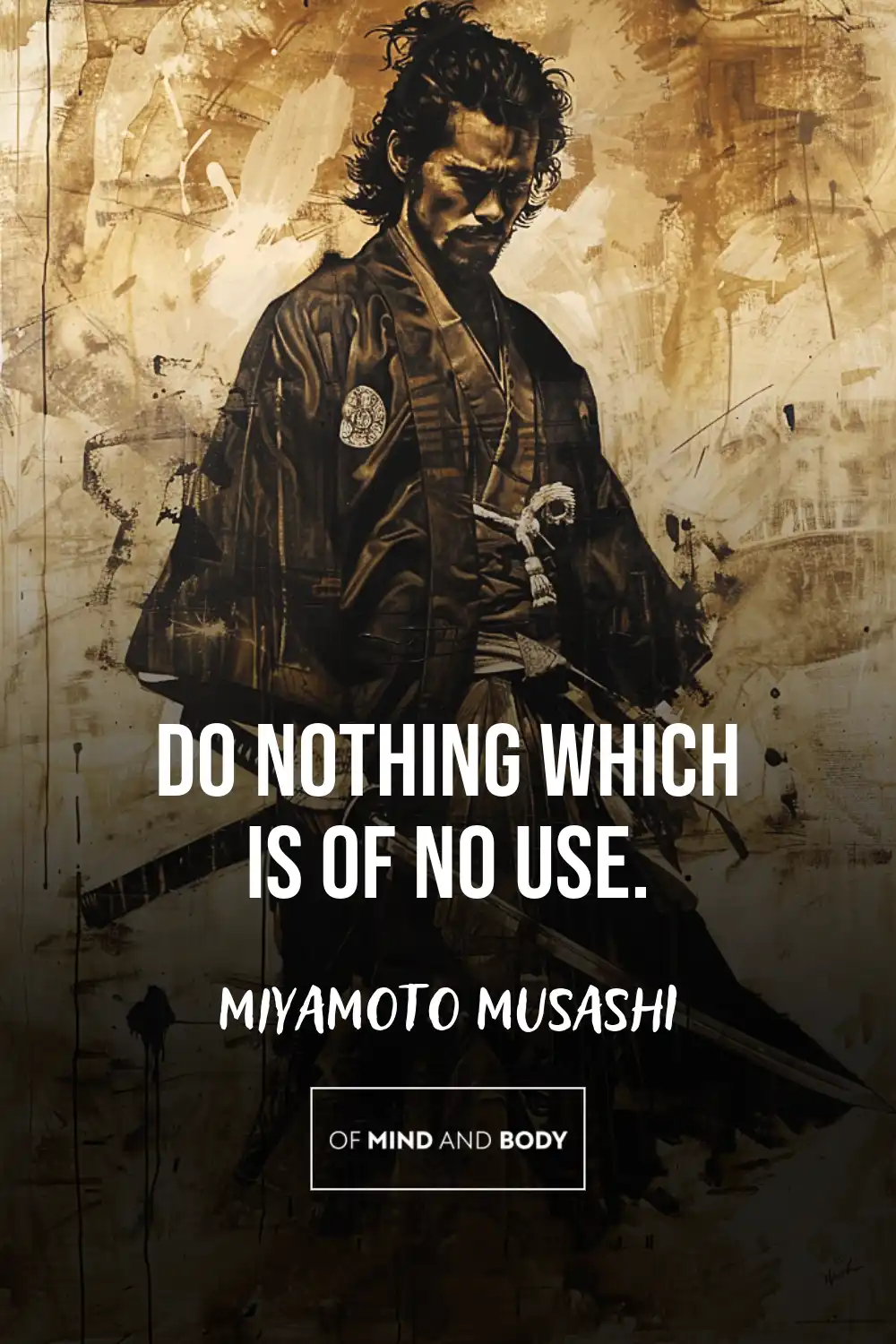
Musashi’s guidance on efficiency and purpose is encapsulated in this quote. He advocated for focusing on actions that contribute to one’s goals and discarding those that do not. This principle emphasises the importance of purposeful and meaningful endeavours.
This analysis cover only a few of Musashi’s quotes on life. For a more comprehensive look at his profound teaching try our article: 12 Timeless Miyamoto Musashi Quotes, for True Inspiration
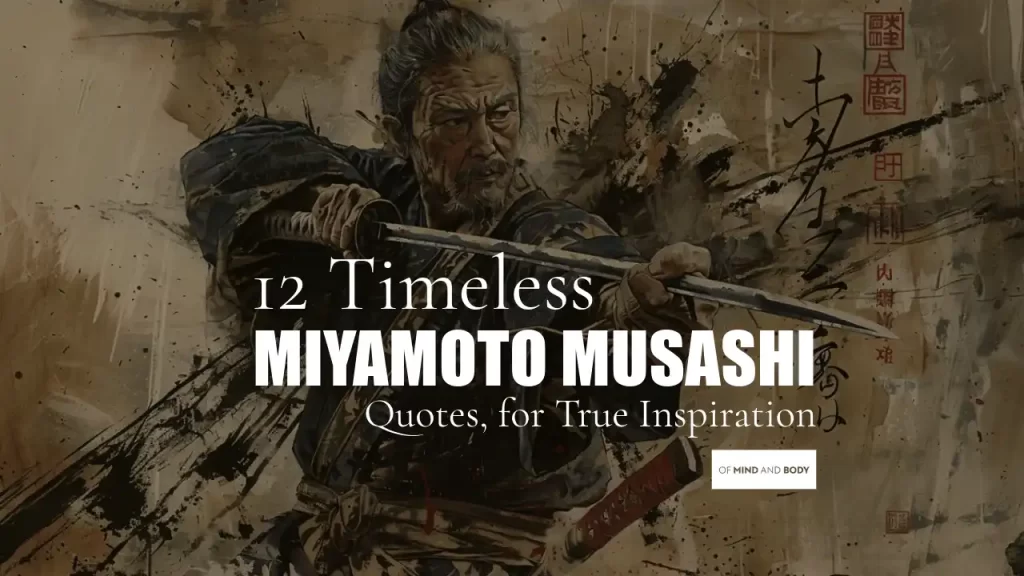
Applying Musashi’s Principles in Everyday Life
Miyamoto Musashi’s timeless principles offer a valuable framework for enhancing everyday life. His teachings, though rooted in the context of samurai discipline, are remarkably versatile and can be applied to various aspects of modern living. By incorporating Musashi’s principles into daily routines, individuals can cultivate a more disciplined, focused, and purposeful life.
Self-Discipline in Daily Habits: Self-discipline, a core tenet of Musashi’s philosophy, is essential for creating and maintaining productive daily habits. This can be as simple as establishing a consistent morning routine that sets a positive tone for the day. Musashi’s emphasis on not seeking pleasure for its own sake encourages us to prioritise long-term goals over short-term gratifications.
By focusing on actions that contribute to our overarching objectives, we can develop habits that promote health, productivity, and personal growth. For instance, dedicating time each day to exercise, meditation, or learning a new skill reflects Musashi’s principle of continuous self-improvement.
Resilience in Facing Daily Challenges: Life is filled with unexpected challenges and setbacks. Musashi’s teachings on resilience can help us navigate these obstacles with a calm and composed mindset. His principle of accepting everything just the way it is encourages us to embrace reality and adapt to changes rather than resisting them.
This mindset is particularly useful in managing stress and maintaining mental health. By viewing challenges as opportunities for growth, we can build resilience and improve our ability to recover from difficulties. Simple practices such as mindful breathing, journaling, and maintaining a positive outlook can enhance our resilience in everyday life.
Strategic Thinking in Personal Goals: Musashi’s strategic insights can be applied to setting and achieving personal goals. The principle of perceiving that which cannot be seen with the eye underscores the importance of foresight and planning. In practical terms, this means setting clear, achievable goals and developing a strategic plan to reach them.
By breaking down larger objectives into manageable steps, we can stay focused and motivated. Regularly reviewing and adjusting our plans based on new information and experiences helps us stay adaptable and aligned with our goals. This strategic approach can be applied to various aspects of life, from career advancement to personal projects.
Efficiency and Purpose in Daily Activities: The principle of doing nothing that is of no use emphasises the importance of efficiency and purpose in our actions. This can be applied by prioritising tasks that align with our values and contribute to our long-term goals.
Time management techniques such as the Pomodoro Technique or the Eisenhower Matrix can help us focus on what truly matters and avoid wasting time on unproductive activities. By decluttering our physical and digital spaces, we create an environment that supports focus and clarity. This purposeful approach to daily activities enhances productivity and fosters a sense of accomplishment.

Simplicity and Minimalism in Lifestyle: Musashi’s advocacy for detachment from material possessions and emotional attachments encourages a minimalist lifestyle. By simplifying our surroundings and focusing on what truly adds value to our lives, we can reduce stress and increase our overall well-being.
This can involve decluttering our homes, minimising unnecessary purchases, and practising gratitude for what we have. Adopting a minimalist mindset helps us appreciate the essentials and fosters a deeper sense of contentment and fulfilment.
Honesty and Integrity in Interactions: Living with honour and integrity, as Miyamoto Musashi espoused, is crucial for building trust and maintaining healthy relationships. This principle can be applied in everyday interactions by being honest, respectful, and consistent in our actions and words.
Practising active listening, showing empathy, and being accountable for our mistakes are ways to embody integrity in daily life. These practices foster stronger connections and create a positive impact on our personal and professional relationships.
In summary, Musashi’s principles offer a comprehensive guide for enhancing everyday life. By integrating self-discipline, resilience, strategic thinking, efficiency, simplicity, and integrity into our daily routines, we can navigate modern challenges with greater clarity and purpose. These timeless teachings continue to inspire and guide individuals towards a balanced, focused, and fulfilling life.
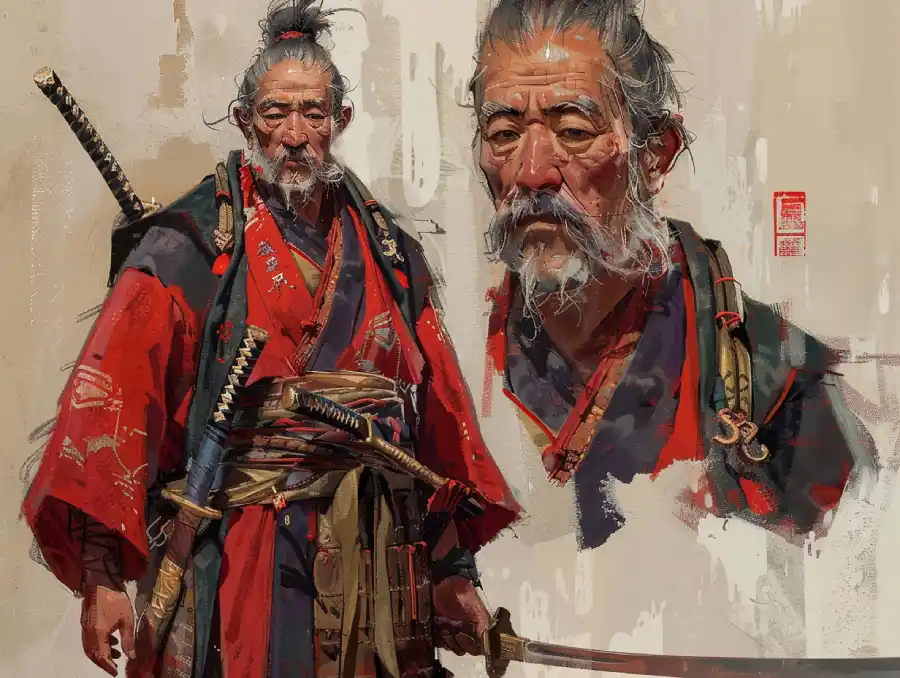
Final Thoughts

Have you ever wondered how ancient wisdom can still guide us today? Miyamoto Musashi’s insights, captured in “Dokkōdō” and his timeless quotes, provide a roadmap for living a disciplined and resilient life. These teachings, born from a lifetime of introspection, martial practice, and strategic thinking, transcend their feudal Japan origins, offering universal lessons for our modern challenges.
Musashi’s philosophy is built on the pillars of self-discipline, self-reliance, detachment, and acceptance. What would happen if you embraced these principles in your daily life? You might find yourself living with more intention and purpose.
Through “Dokkōdō,” Miyamoto Musashi distils his wisdom into 21 clear precepts, each one guiding us toward personal mastery and inner peace. How often do we get caught up in unnecessary attachments or lose focus on what truly matters?
Musashi encourages us to see reality for what it is, to minimise distractions, and to maintain a resilient mindset. His emphasis on strategic thinking and continuous improvement reminds us that foresight, adaptability, and perseverance are key to long-term success and fulfilment.
Incorporating Musashi’s teachings into your life could be the key to navigating modern complexities with greater clarity and purpose. Imagine the impact of living with the same discipline, strategic foresight, and inner strength that Miyamoto Musashi himself embodied. The path to a life of integrity and fulfilment is timeless, and Musashi’s legacy continues to light the way.

